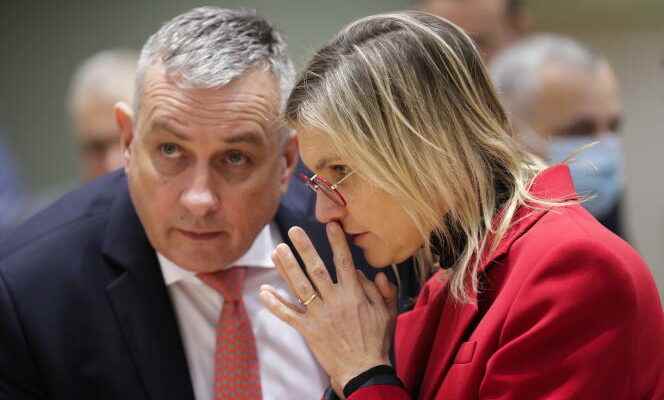It took weeks of negotiations, endless discussions, sometimes late into the night, repeated psychodramas, for the Europeans to finally decide on a cap on the price of gas. On Monday, December 19, the energy ministers of the Twenty-Seven reached an agreement on this dossier which had been poisoning their lives since this summer. Only Hungary opposed it, while The Hague and Vienna abstained. As for Moscow’s reaction, it was not long in coming. The Kremlin qualified on Monday evening as“unacceptable” any idea of a market price cap.
Jozef Sikela, the Czech Minister of Industry, whose country holds the rotating presidency of the EU Council, did not hide his pleasure to have finished Monday evening. At the press conference, he wore a white sweatshirt that read “We will convene as many councils of energy ministers as necessary” and which he had produced in twenty-seven copies in order to offer one to each of its European counterparts.
Concretely, the device is as follows. As of February 15, transactions on the Rotterdam TTF wholesale market will be prohibited for at least twenty working days when, during three working days, the price of the one-month contract and certain futures contracts exceeds 180 euros on megawatt hour (it was worth around 110 euros on Monday). So that this device does not drive energy suppliers away to other countries, in Asia for example, where customers would be prepared to pay more, it was also agreed that, over this same period, the difference between the TTF and the world price of liquefied natural gas had to be higher than 35 euros.
Eager to show themselves united against Moscow in these times of war in Ukraine, the European Heads of State and Government had preferred, during their meeting in Brussels on December 15, to avoid the subject, knowing to what extent this file could divide. Behind the scenes, the discussions had gone well, but they had not made it possible to unblock the situation. At the end of their meeting, the Twenty-Seven urged their energy ministers, who were to meet four days later, to ” finalize “ the text.
Supply concerns
“A unique wording that shows the pressure we want to put on ministers”agreed the President of the European Council, Charles Michel. “We have a 90% agreement”, commented, for his part, President Emmanuel Macron, when in reality the Europeans had not managed to agree on the central element of the text, namely the level of the gas price ceiling. All weekend, the exchanges continued between the capitals, France trying to embark a Germany hostile to the very principle of intervention on the market.
You have 59.77% of this article left to read. The following is for subscribers only.
